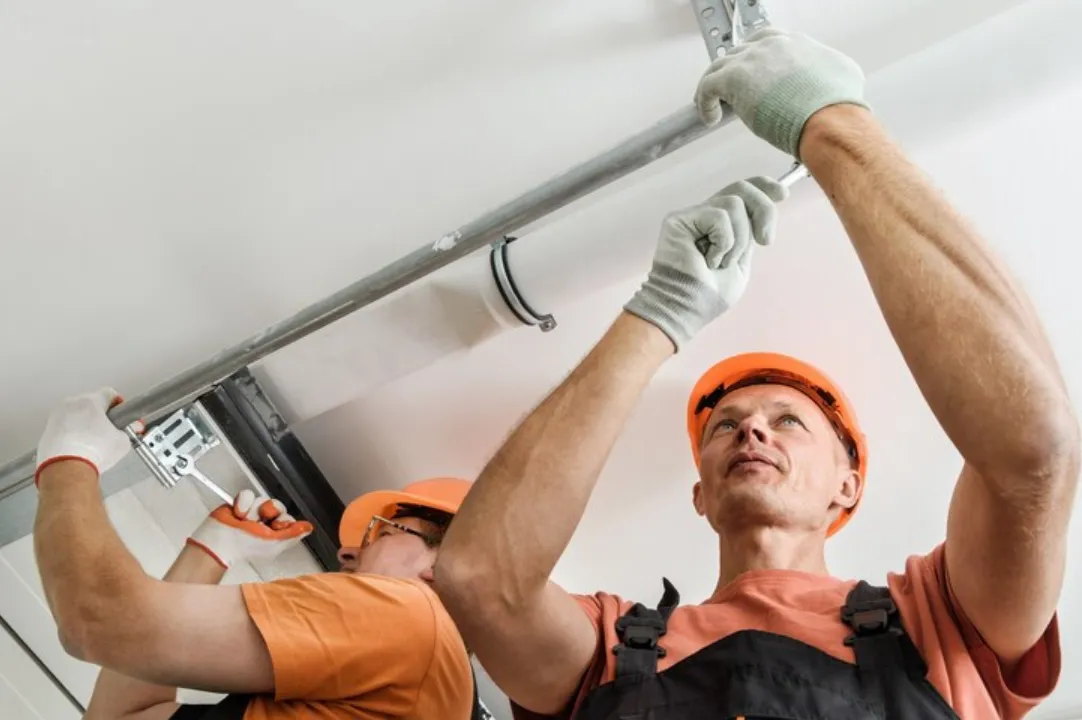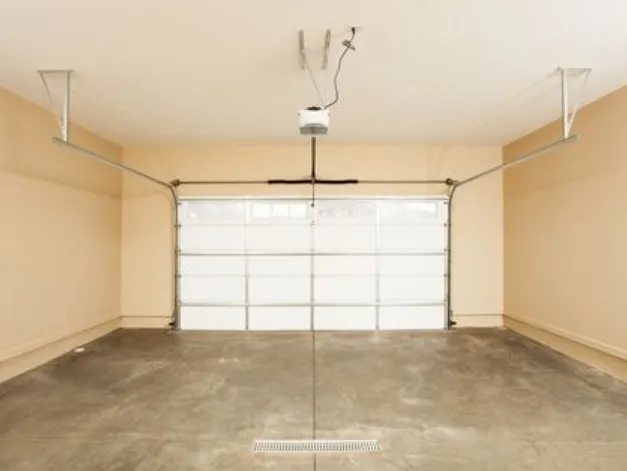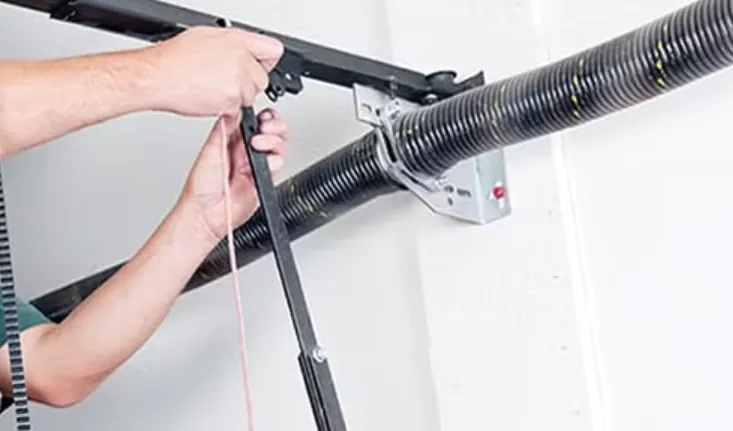Let’s be real— we all know that a garage is more than just a parking space for your car. It’s a workshop, a storage unit, and sometimes even a sanctuary. So, when it comes to choosing a garage door opener, picking the right one can make all the difference in your daily routine. From the smoothness of operation to the safety features, everything counts. In this guide, we’ll delve into different types of garage door openers and weigh their pros and cons to help you make an informed choice.
Understanding the Mechanisms of Garage Door Openers
1. Chain-Drive Openers
A chain-drive garage door opener utilizes a metal chain to push or pull a trolley that moves the garage door up and down. The trolley is connected to the motor, which is the primary component facilitating the movement.

How they work?
Chain-Drive openers are the workhorses of the garage door opener world. Imagine a bicycle chain pulling your garage door up and down, and you’ve got the basic concept.
Pros and Cons
– Pros: Durable, reliable, and generally less expensive.
– Cons: They can be noisy and might not be the best choice if your garage is adjacent to a living space.
If you’re on a budget and need a reliable garage door option, you might want to read our article on cheapest garage door options.
2. Belt-Drive Openers
Belt-drive garage door openers work similarly to chain-drive openers, but instead of a metal chain, a rubber belt is used. The belt is generally made from polyurethane, fiberglass, or steel-reinforced rubber.
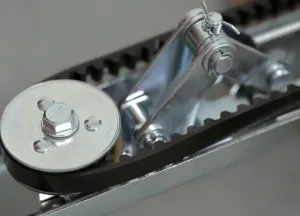
How they work?
Belt-Drive openers use a rubber belt instead of a chain, which makes them quieter during operation. Think of it as the smoother, more refined sibling of the chain-drive.
Pros and Cons
– Pros: Quiet and less vibration, good for attached garages.
– Cons: Generally more expensive than chain-drive options
3. Screw-Drive Openers
A screw-drive garage door opener uses a threaded steel rod to move the trolley. When the rod rotates, the trolley moves along the track, lifting or lowering the door.
How they work?
The Screw-Drive opener employs a threaded steel rod to lift the door. It offers a balanced mix of speed and noise level.
Pros and Cons
– Pros: Fewer moving parts, which can mean less maintenance.
– Cons: Can be noisy and sensitive to temperature changes.
4. Direct-Drive Openers
Direct-drive openers feature a motor that moves along a stationary chain in a simplified, one-piece system. Unlike other types, the motor itself serves as the “trolley,” eliminating the need for additional moving parts.
How they work?
Direct-Drive systems have the motor itself move along the track, pulling the garage door. This eliminates the need for belts, chains, or screws.
Pros and Cons
– Pros: Very quiet and reliable, often with lifetime warranties.
– Cons: Usually more expensive upfront.
5. Jackshaft Openers
Jackshaft garage door openers are wall-mounted and operate on a pulley and torsion bar system. Instead of moving a trolley along a track, the motor directly turns the torsion bar to open or close the door.
How they work?
A jackshaft opener is mounted on the wall beside the garage door and turns the torsion bar to raise or lower the door.
Pros and Cons
– Pros: Frees up ceiling space, allowing for additional storage or even a car lift.
– Cons: Typically more expensive and may not be compatible with all garage door types.
If you have specific needs for ceiling space, such as accommodating a car lift, then a jackshaft opener might be the best option. Learn more about the benefits of different garage doors to find the right fit for you.
To help you make a more informed choice, here’s a quick comparison of the different types of garage door openers and their key features.
| Type of Opener | Noise Level | Durability | Maintenance Required | Cost |
|---|---|---|---|---|
| Chain-Drive | High | High | Regular | Low |
| Belt-Drive | Low | Medium | Minimal | High |
| Screw-Drive | Medium | Medium | Regular | Medium |
| Direct-Drive | Low | High | Minimal | High |
| Jackshaft | Low | High | Minimal | High |
Control Methods – More Than Just Opening Doors
The garage door opener isn’t just about lifting a heavy door; it’s about how comfortably and conveniently you can control that action. So, how do you like your garage door—traditional, keypad-controlled, or smart enough to be operated via an app? Let’s get into it.
1. Remote Control
A remote control uses radio frequency signals to communicate with the garage door opener. You simply press a button, and voilà, the door opens or closes.

Features
- Rolling Code Technology: Enhances security by generating a new code each time the remote is used.
- Multi-Door Control: Some remotes can operate multiple doors.
- Long-Range Operation: Allows you to open or close the door from a considerable distance.
Brands
- Genie: Known for their Intellicode technology that changes the access code after every operation.
- Liftmaster: Offers multi-door controls and long battery life.
If you’re interested in a more in-depth look at how remote controls enhance security, check out How Secure Is Your Garage Door?
2. Wall Switch
Mounted inside the garage, a wall switch is hardwired to the door opener. It generally offers basic up-and-down operation but may have additional features.
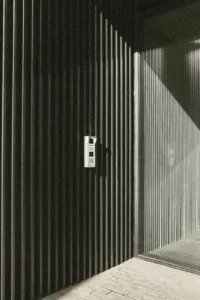
Features
- Lock Function: To disable all other controls for added security.
- Timer: To close the door automatically after a set period.
- Motion-Activated Lighting: Lights up the garage when you enter.
Brands
- Chamberlain: Known for their intuitive wall control panels.
- Genie: Offers backlit panels for easy night-time operation.
3. Keypad
Mounted outside the garage, a keypad requires a security code for operation, providing an extra layer of security.

Features
- Temporary Codes: For guests or service personnel.
- Backlit Keypads: For night-time operation.
- Weather-Resistant Design: To withstand elements.
Brands
- Genie: Known for their easy-to-program keypads.
- Chamberlain: Offers fingerprint recognition for enhanced security.
Discover more about keypad security in our guide Are Garage Door Keypads Secure to Use?
4. Smartphone Apps
A smartphone app connects to your garage door opener via Wi-Fi, allowing you to control your garage door from anywhere.
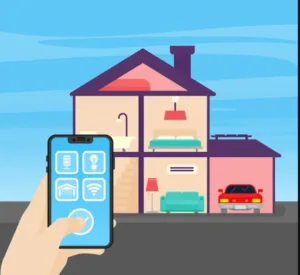
Features
- Geo-fencing: Automatically opens or closes the door when you approach or leave.
- Real-Time Alerts: Notifies you if the door is left open.
- Guest Access: Grant temporary access to friends and family.
Brands
- Liftmaster: Offers the MyQ app, which is compatible with a range of smart home systems.
- Genie: The Aladdin Connect app offers advanced features like voice control.
For a comprehensive look at smart garage door options, check out How to Choose a Smart Garage Door.
For a quick overview, here’s how different control methods stack up in terms of features and usability.
| Control Method | Accessibility | Security | Ease of Use |
|---|---|---|---|
| Remote Control | High | Medium | High |
| Wall Switch | Medium | High | Medium |
| Keypad | High | High | Medium |
| Smartphone Apps | High | High | High |
Power Source Options – Energizing Your Experience
As you contemplate your garage door opener options, power source stands as a vital consideration. The source can impact everything from functionality to emergency preparedness. Let’s dive in.
1. Electric-Powered Openers
Electric-powered openers are the standard in the industry. They use your home’s electricity to operate, converting alternating current (AC) to direct current (DC) for smoother operation.
Features
- Energy Efficient: Consumes less power during standby.
- Horsepower Options: Varies from 1/2 HP to 1 1/2 HP depending on the weight and size of the door.
- Safety Measures: Often come with sensors to prevent the door from closing on obstacles.
Brands
- Liftmaster: Renowned for their energy-efficient models.
- Chamberlain: Offers a range of horsepower options to suit various door sizes.
For more on the nuances of electric power, see our guide on Common Garage Door Problems & How to Fix Them.
2. Battery Backup Options
In case of a power outage, battery backups ensure your garage door opener still functions. These are usually rechargeable and kick in automatically.

Features
- Longevity: Can operate the door several times before needing a recharge.
- Quick Charging: Some models can recharge in less than 4.5 hours.
- LED Indicators: To show battery status.
Brands
- Genie: Their backup systems can operate up to 50 cycles after a power loss.
- Liftmaster: Known for quick-charging and long-lasting batteries.
Learn more about power backup options in our post on Garage Door Maintenance Tips.
Special Features – Elevate Your Garage Experience
1. Smart Home Integration
Control your garage door opener through a smart home ecosystem. Integrations often include Amazon Alexa, Google Assistant, and Apple’s HomeKit.

Brands
- Chamberlain: Works well with Google Assistant and IFTTT.
- Genie: Compatible with Amazon Alexa.
2. Built-in Camera
A built-in camera in your garage door opener enhances security by allowing real-time monitoring.

Brands
- Liftmaster: Their Secure View model has a built-in camera.
- Chamberlain: Offers models with camera and two-way communication.
3. Auto-Close Function
This feature automatically closes your garage door after a specified period, enhancing both convenience and security.
Brands
- Genie: Their models allow you to set the time for auto-close.
- Liftmaster: Known for their reliable auto-close function.
4. Security Locks
Some garage door openers come with additional locking mechanisms for enhanced security.
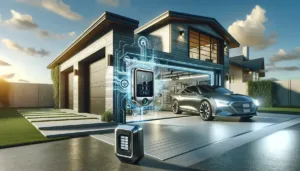
Brands
- Chamberlain: Offers PosiLock that locks the door when it’s down.
- Genie: Known for their additional security features like vacation lock.
To dive deep into garage security measures, visit Enhancing Garage Security with Locks.
Brand Comparison – Finding Your Perfect Match
When choosing a garage door opener, the brand can significantly affect your experience. Here, we compare popular brands, focusing on what sets each apart.
1. LiftMaster
LiftMaster excels in security and smart home integration. Their MyQ technology allows for seamless smartphone control, and the Security+ 2.0 ensures a new code every time the remote is activated.
2. Genie
Genie provides a broad range of options, from chain-driven models to quieter belt and screw drives. Their Aladdin Connect technology allows easy home automation integration.
Discover more about Genie’s Garage door range in our guide on Garage Doors
3. Chamberlain
Chamberlain offers advanced features like built-in Wi-Fi and battery backup. Their models often incorporate the myQ app, offering excellent smart home compatibility.
4. Craftsman
Craftsman is known for durability and reliability, with a focus on traditional chain and belt-driven models. They offer easy-to-install kits suitable for DIY enthusiasts.
5. Sommer
Sommer’s garage door openers are direct-drive units, ensuring quiet yet powerful operation. Their products are not as readily available but offer top-notch German engineering.
Still undecided on the brand? This table summarizes the unique features of each to help you choose.
| Brand | Special Features | Range of Openers | Availability |
|---|---|---|---|
| LiftMaster | Smart Home Features | Wide | High |
| Genie | Reliability | Wide | High |
| Chamberlain | Durability | Moderate | High |
| Craftsman | Versatility | Limited | Medium |
| Sommer | Quiet Operation | Limited | Low |
Considerations When Choosing an Garage Door Opener
1. Weight and Size of Your Garage Door
It’s crucial to match your opener’s horsepower to your garage door’s weight and size. Too little power will result in wear and tear, while too much can be an unnecessary expense.
2. Speed and Horsepower
Speed varies between models, but most residential garage door openers range between 6 to 8 inches per second. Ensure you choose an opener with sufficient horsepower for smoother, faster operations.
3. Installation and Costs
While DIY can save on upfront costs, improper installation can lead to issues down the line. Professional installation ensures that your opener functions correctly and complies with safety regulations.
Advantages and Disadvantages of Different Types of Garage Door Openers
As you deliberate on your options for a garage door opener, let’s consider the pros and cons of each type, allowing for a well-informed decision.
Chain-Drive Openers
Pros:
- Durable and long-lasting
- Generally less expensive
Cons:
- Noisy operation
- Periodic maintenance required
Learn how to maintain chain-drive openers by reading our Garage Door Maintenance Tips.
Belt-Drive Openers
Pros:
- Quiet operation
- Less maintenance required
Cons:
- Higher upfront cost
- Belt may require replacement
For cost considerations, check out Cheapest Garage Door Options.
Screw-Drive Openers
Pros:
- Fewer moving parts
- Faster opening speeds
Cons:
- Noisier than belt-drive
- Sensitivity to temperature fluctuations
Direct-Drive Openers
Pros:
- Extremely quiet
- Durable with fewer moving parts
Cons:
- Higher initial investment
- Limited availability
Jackshaft Openers
Pros:
- Space-saving
- Ideal for garages with high or sloping ceilings
Cons:
- Expensive
- Not suitable for all door types
Here’s a quick table that encapsulates the advantages and disadvantages of each type of garage door opener.
| Type of Opener | Advantages | Disadvantages |
|---|---|---|
| Chain-Drive | Cost-effective, Durable | Noisy, Requires Regular Maintenance |
| Belt-Drive | Quiet, Low Maintenance | Higher Cost |
| Screw-Drive | Fewer Moving Parts, Reliable | Noisy, Sensitive to Temperature Changes |
| Direct-Drive | Quiet, Low Maintenance | Higher Cost, Limited Availability |
| Jackshaft | Space-saving, Quiet | High Cost, Professional Installation Required |
FAQs on Garage Door Opener
What is the average lifespan of a garage door opener?
The average lifespan of a garage door opener is between 10 to 15 years, depending on usage and maintenance. Regular upkeep can extend its life.
How do I maintain my garage door opener to extend its life?
Lubricate the chain, check for worn parts, and test the safety features regularly. For more tips, refer to our Garage Door Maintenance Tips.
Is it difficult to install a garage door opener myself?
It depends on your DIY skills. Some people find it straightforward, but if you’re not comfortable with electrical work, it may be best to hire a professional. Refer to our section on Installation and Costs.
What do I do if my garage door opener stops working?
First, check the batteries in the remote and the power supply to the opener. If those are fine, consult our article on Common Garage Door Problems & How to Fix Them.
Can I upgrade my existing garage door opener to be smart home compatible?
Yes, there are aftermarket kits available that allow you to upgrade your existing garage door opener for smart home integration.
What are some signs that I need to replace my garage door opener?
Signs include frequent breakdowns, increased noise levels, and outdated safety features.
How do I choose between a belt-drive and a chain-drive opener?
Refer to our section on Understanding the Mechanisms for an in-depth comparison.
Is it safe to buy a used garage door opener?
It can be risky due to potential wear and tear and outdated security features. Always make sure to check the device thoroughly and ensure it meets current safety standards.
What kind of warranty should I look for when purchasing a new opener?
A warranty of at least 5 years for the motor and at least 1 year for parts is a good standard.
How secure are smart garage door openers?
Most smart garage door openers come with additional security features like rolling codes and two-factor authentication. For more, refer to our How Secure is Your Garage Door article.
Which garage door openers slow down when opening and closing?
Models with a ‘soft start and stop’ feature will slow down when opening and closing to reduce wear and tear.
What garage door openers are available with security features like rolling codes?
Brands like LiftMaster and Chamberlain offer rolling code technology for enhanced security.
What garage door openers are compatible with HomeLink® and Car2U®?
Most major brands like LiftMaster, Genie, and Chamberlain are compatible with HomeLink and Car2U systems.
What garage door openers offer the ability to open and close with my mobile phone or device?
Smart garage door openers from brands like Chamberlain and LiftMaster offer this feature, often through a dedicated mobile app.
Which garage door openers have motion detection lighting?
Chamberlain and Genie offer models with built-in motion detection lighting.
I need more light in my garage, how do I get a garage opener with more light bulbs?
Look for models with higher wattage or multiple light bulb fixtures.
Final Thoughts
The modern garage door opener is no longer just a convenience; it’s a piece of technology that can significantly impact your home’s security, usability, and even its aesthetics. In this comprehensive guide, we’ve delved into the intricacies of various types of garage door openers, their control methods, power sources, special features, and notable brands.
Personal Recommendations
For budget-conscious consumers, chain-drive openers offer durability at an affordable cost. If noise is a concern, particularly for attached garages, belt-drive or direct-drive options are ideal. For homes with special requirements, such as high ceilings, a Jackshaft opener may be the most effective solution. Before making any decision, consult a professional to assess your particular needs, especially concerning installation and power requirements.
Explore More About Garage Door Openers
To further enhance your understanding of garage door openers, consider the following topics:
-
Cost Considerations: Delve into the financial aspects with our guide on Garage Door Opener Cost for a comprehensive look at what you might expect to spend.
-
Handling Power Outages: Learn how to manage your garage door when the power goes out in our article, How to Open Garage Door Without Power.
-
Programming and Reprogramming: For security and convenience, understand the processes of Programming your Garage Door Opener and Reprogramming your Garage Door Opener.
-
Troubleshooting Common Issues: Address frequent problems using our guide on Common Garage Door Problems & How to Fix Them.
-
Repair Guidance: Save time and money by learning how to Repair a Garage Door.
-
Lock Type Comparison: Make an informed decision between Automatic vs. Manual Garage Door Locks for enhanced security.

